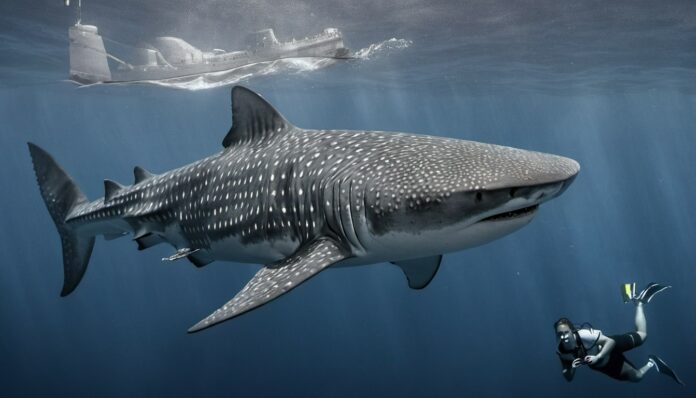Most people find the name “whale shark” to evoke a sense of excitement, mystery, and strong curiosity. But how much do you really know about the largest fish in the world? Here are nine interesting facts you might not have heard about this majestic marine animal.
Interesting Facts About Whale Sharks:
The Largest Fish in the Sea
The whale shark holds the record for being the largest fish in the world. These gentle giants can grow up to 40 feet long and weigh as much as 20 tons. Some have even been recorded to reach 60 feet in length.
Gentle and Harmless
Despite their massive size, whale sharks are known for their gentle nature. They pose no threat to humans and are often curious, sometimes even allowing swimmers and divers to get close.
Long Lifespan
Whale sharks have a long lifespan, often living between 70 and 100 years. Some researchers believe they could live even longer, but exact age estimates are challenging to determine.
The Largest Mouth
Whale sharks have the largest mouth of any fish, which can be up to 5 feet wide. Despite this, their throats are small, only about the size of a grapefruit, which limits the size of their prey.
They are not whales but the largest fish in the ocean
Whale sharks can grow incredibly large, reaching up to 12 meters in length and weighing 21.5 tons.
Whale sharks feed by filtering water; they can’t bite or chew
As filter feeders, whale sharks primarily sift through water using their gill arches to collect plankton for nourishment. During feeding, their mouths can stretch up to 1 meter wide!
They can filter more than 6,000 liters of water per hour
Using their gills, whale sharks can process over 6,000 liters of water every hour.
Whale sharks swim slowly but migrate long distances
Moving at speeds no more than 4 km/h, a single whale shark can travel over 12,874 km in just three years.
They have five thousand teeth
Whale sharks have around 3,000 small teeth, each less than two and a half centimeters long, which help them feed on tiny shrimp, fish, and plankton.
